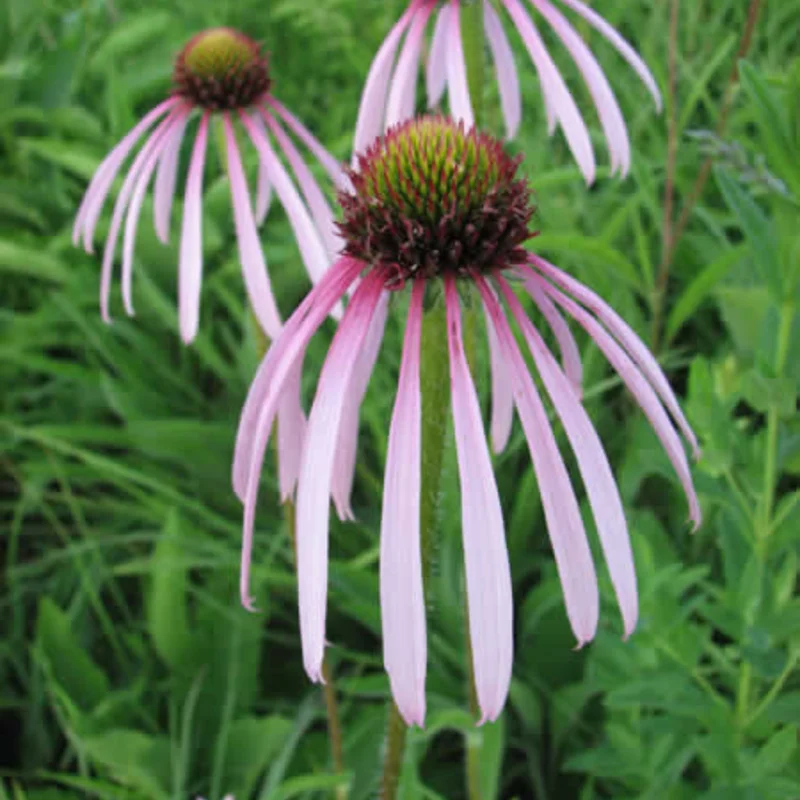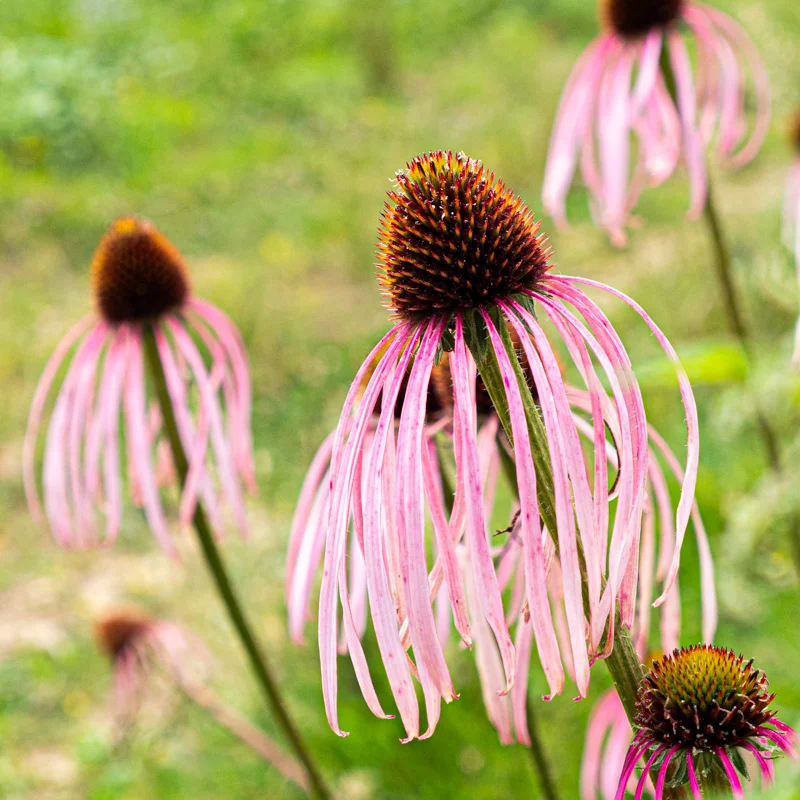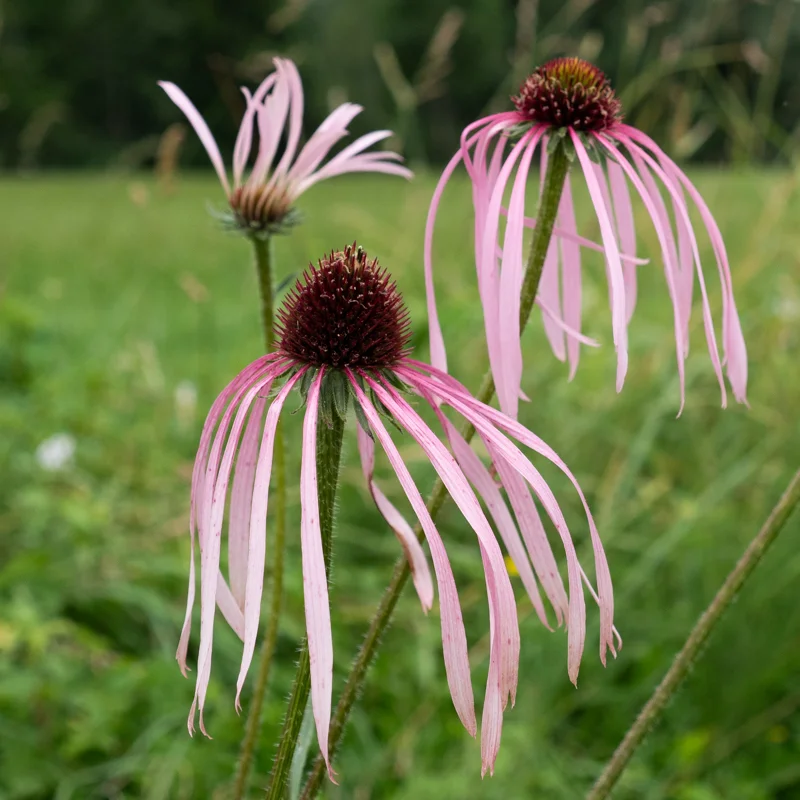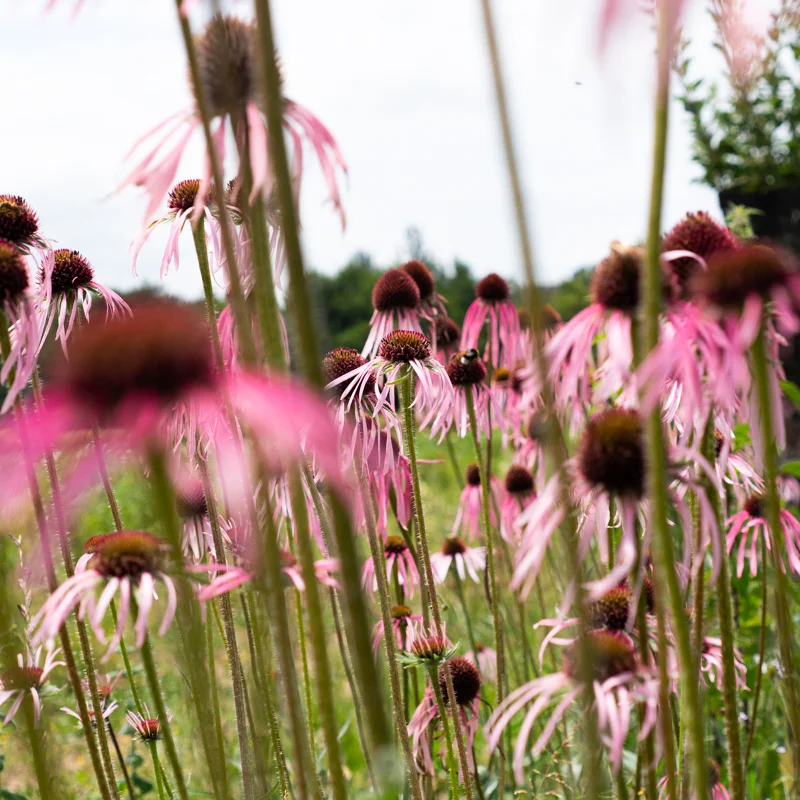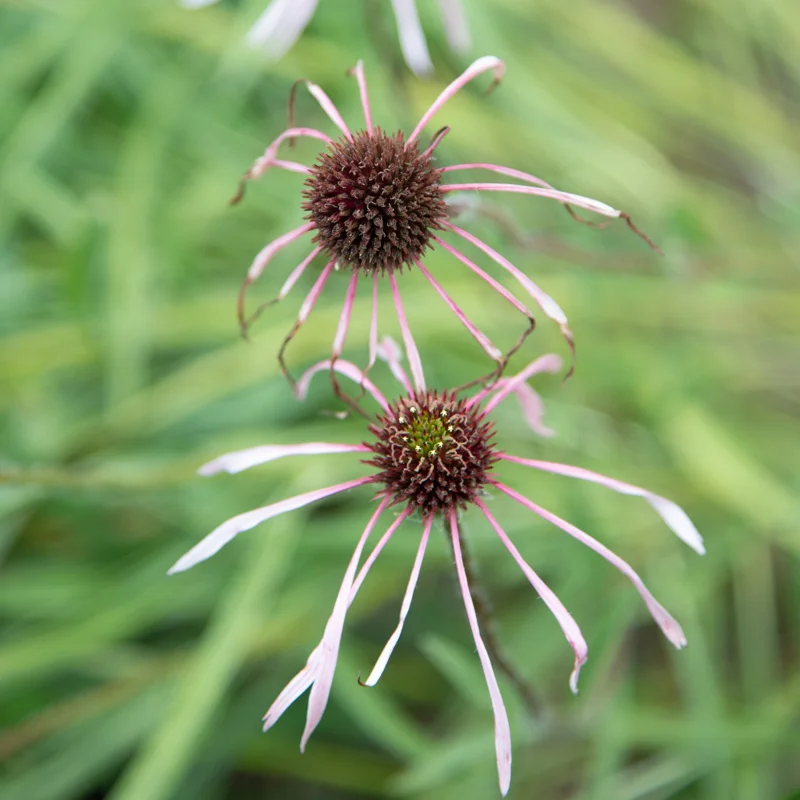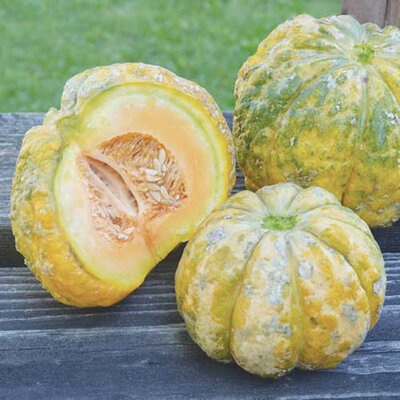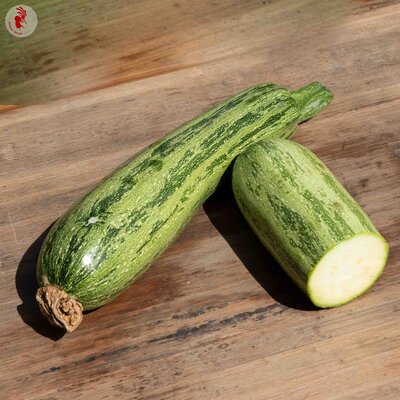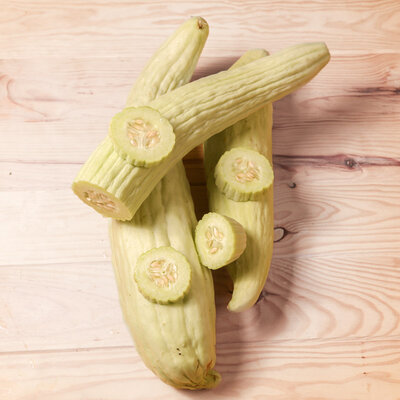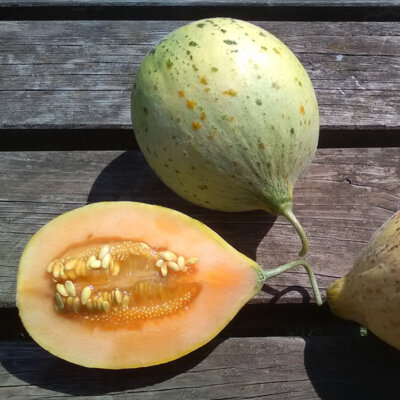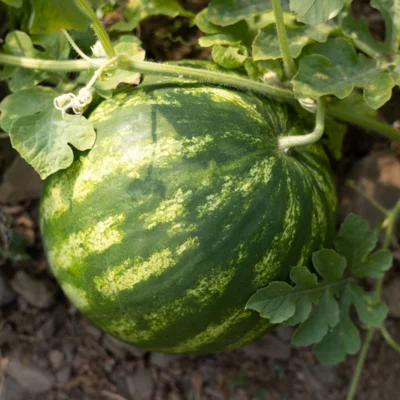Pale Purple Echinacea
This highly medicinal perennial has slender, upright stems from June to July, bearing a flower with pale pink to purple petals 4 to 8 cm long, curving towards the ground.
This species is a major player in Native American pharmacopoeia.
These products may also be of interest to you
in bucket
Place seeds in the refrigerator for 60 days before sowing in spring. Sow in trays, making sure seeds are lightly covered. When the plants have 5 to 6 leaves, transplant into individual cups or directly into warmed soil. Autumn sowing is done in the same way, and left outdoors until spring. It is also possible to sow in the ground.
Very slow growth, but can flower the first year.
March, April, September, October
September, October, November
June, July, August, September
in the ground, in pot
sunny
medium
all floor types
drained, rich, reheated
Echinacea pallida
late
100 seeds
Violet, White
edible
From 80 to 100 cm
elongated
North America
It blooms in June and July. "Echinacea pallida" is found in clearings, rocky meadows and woods in an area stretching from northeast Texas to southern Wisconsin.
The rhizome of "Echinacea" was used by the Indians of the North American plains, perhaps more than any other plant, in the elaboration of medicinal remedies. In the 1930s, it became popular in both Europe and the United States as a folk medicine. It was credited with boosting the body's immune system and helping to prevent infections. Depending on the species used, medicinal beverages can be prepared from the stem and flower, or from the root.



